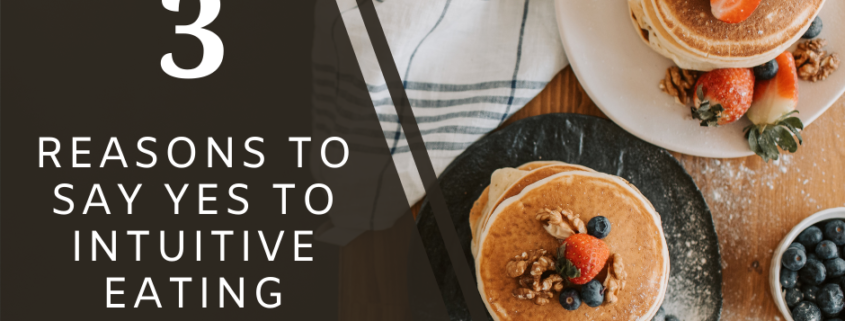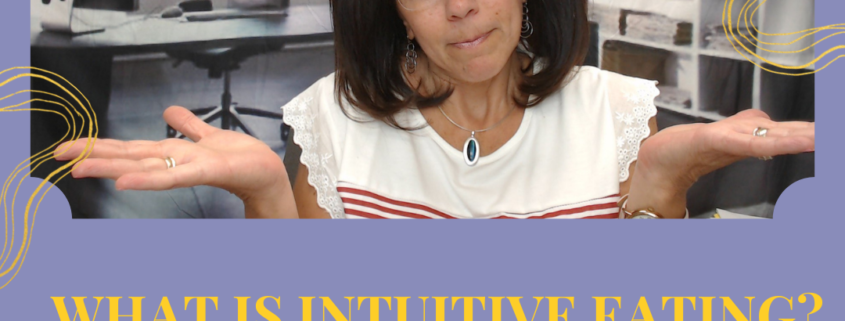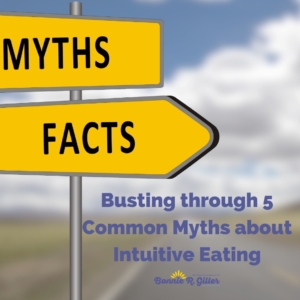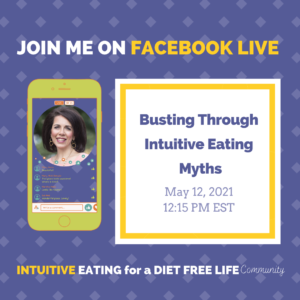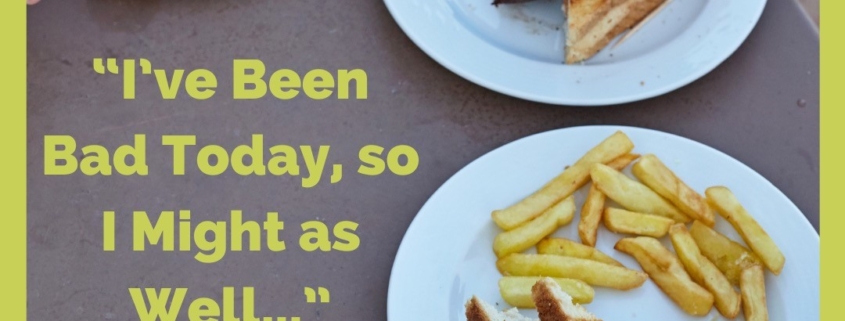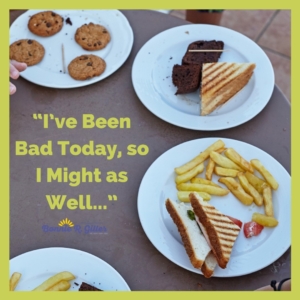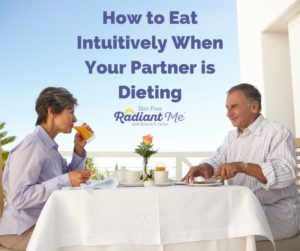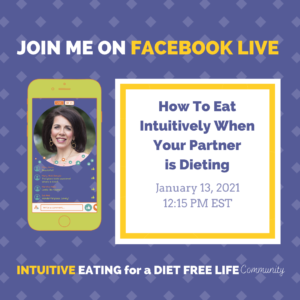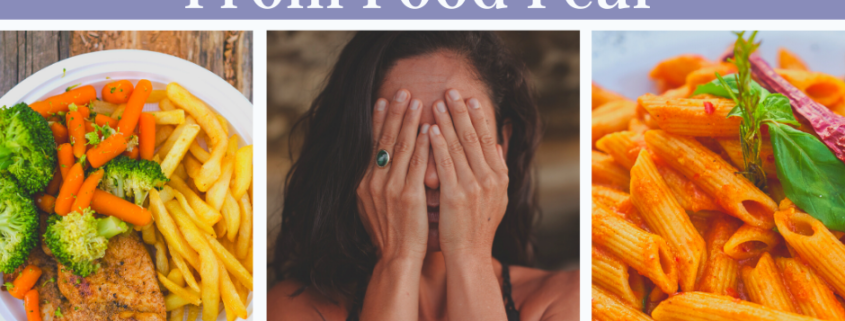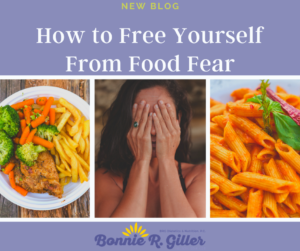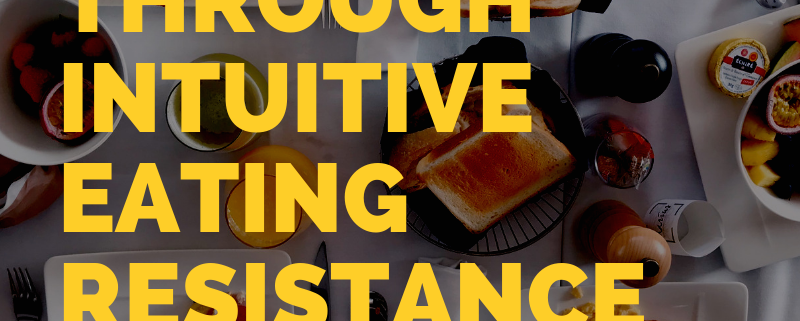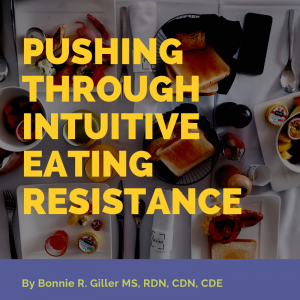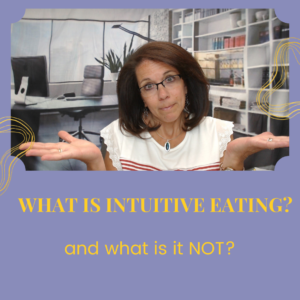 Have you ever taken a deep dive into understanding what Intuitive Eating really is? There are many misconceptions around the concepts and lessons promoted within Intuitive Eating—but the confusion stops here.
Have you ever taken a deep dive into understanding what Intuitive Eating really is? There are many misconceptions around the concepts and lessons promoted within Intuitive Eating—but the confusion stops here.
Intuitive eating is a self-care eating framework that helps you attune to your internal body signals, break the cycle of chronic dieting, and heal your relationship with food and your body.
Intuitive Eating is NOT a diet, it is NOT a meal plan, and it is certainly NOT “for weight loss”.
Benefits of Intuitive Eating
There are currently over 120 studies that show Intuitive Eating:
- Increases body appreciation
- Improves life satisfaction
- Increases motivation for movement
- Increases intake of nourishing foods
- Improves overall health
- Decreases disordered eating behaviors (i.e., bingeing)
But What Exactly is Intuitive Eating?
Intuitive Eating was developed by two registered dietitians, Evelyn Tribole and Elyse Resch. It “integrates instinct, emotion and rational thought”. (www.intuitiveeating.org)
It is a process that enables you to attune to what your body needs and allows you to trust what your body is telling you.
With Intuitive Eating, there is no diet plan, counting calories, macros, weight check-ins, or “off limit” foods—it’s exactly the opposite!
Intuitive Eating instead focuses on teaching you to eat and think OUTSIDE of the diet mentality and diet culture messages.
The focus is on internal cues like your hunger, fullness, and satisfaction, while helping you to move away from the external cues you are so accustomed to using to guide your eating, such as food rules and restriction.
In other words, Intuitive Eating…
…4 Things that Intuitive Eating Helps You Achieve
(1) Encourages you to become the expert of your own body.
Believe it or not, we are ALL born Intuitive Eaters! We are all born knowing how much we need to eat, when to eat, and what we would like to eat, yet unfortunately, as we grow up, this ability is clouded by the messages of diet culture and the environment in which we grow up in.
Does this sound familiar?
- Having to finish your plate at dinner time in order to watch TV or get dessert.
- Hearing the messages that “thin is best” or “to be thin is to be healthy”
- Feeling that choosing “good” vs “bad” foods is a direct reflection of how you should feel about yourself.
All these messages, both from your caregivers and diet culture, teaches you to ignore your internal cues and not trust your body.
As you grow older, you often find yourself feeding into these messages, rules and regulations set forth by diet culture.
You are led to believe that in order to “be healthy”, you must follow a diet and/or restrict your foods, but this is not true at all. Your body knows what is needs and wants, it’s just time to listen to its messages.
(2) Helps develop trust in your body and gives you the confidence to make food choices based on your needs.
The diets have stripped the trust you had in your body when you were born. That might sound distressing, but the good news is that you can regain that trust in yourself again!
When you fully ditch the diet rules and give up dieting for good, you will learn to trust your body again, and you will be amazed at what your body is capable of telling you!
(3) Allows you to develop a healthy relationship with food.
Intuitive Eating takes the focus off weight loss, the scale, diet plans, cleanses, and everything that has to do with “diet culture” and instead focuses on developing a better relationship with your food choices and your body.
Intuitive Eating is rooted in ten principles to help move you away from the rules and regulations of dieting. These 10 principles help you attune to your thoughts, feelings, and signals, while learning to integrate health recommendations from the outside world.
What Intuitive Eating is NOT
Now that you know a little bit about what Intuitive Eating is all about, let’s discuss what Intuitive Eating is NOT!
4 Things Intuitive eating is NOT…
(1) A diet.
With Intuitive Eating, there is no counting calories, daily weigh-ins, lists of foods to eat vs not eat—in fact all of these things are discouraged when practicing Intuitive Eating.
(2) The hunger/fullness diet.
While Intuitive Eaters do check in regularly with their hunger and fullness signals—there is SO MUCH more to it than this!
Intuitive Eaters approach every meal with curiosity—they ask themselves questions such as:
- How hungry am I today?
- Do I want a second serving?
- How will I feel after I eat ____?
Approaching a meal with curiosity versus judgement (like many dieters do) allows you to learn from situations, like getting to a place of overfullness after a meal or allowing yourself to get too hungry at the end of a long day. Important lessons are learned from these experiences.
(3) A non-dieting weight loss approach.
Intuitive Eating places NO emphasis or pressure on losing weight. The conversation around body weight is instead from a weight-neutral lens. In other words, it promotes physical and mental well-being regardless of one’s body size.
Intuitive Eating does not promise weight loss or any expectation of losing weight.
(4) The “eat whatever I want, whenever I want” mindset.
Yes, Intuitive Eating does promote giving yourself unconditional permission to eat and promotes eating in a way that makes you feel your best—but this doesn’t mean it is a free for all.
At the beginning of your Intuitive Eating journey it is very common for people to eat a lot of foods they had previous restricted, however the drive to eat in this way decreases over time.
Over time, you will normalize these once “forbidden foods” and view them (and all foods) as neutral. All the foods you’ve been dying to have will soon become a part of your normal eating pattern in a way that feels great (and not fearful!)
There you have it!
To get a taste of the awesomeness of Intuitive Eating, check out my Intuitive Eating Basics Course. It’s a LOW investment with HIGH returns!!
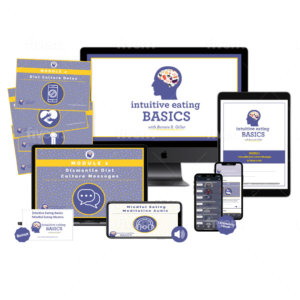
Click HERE to grab this deal!
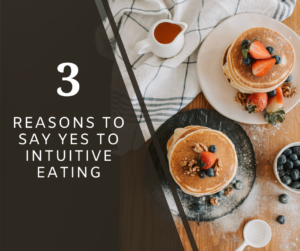 Every week I receive dozens of phone calls asking me for a meal plan to help them lose weight. Most of my clients have tried the most popular diets on the market with little success. Instead of giving them another meal plan with strict rules to follow, I will instead point them in the direction of Intuitive Eating.
Every week I receive dozens of phone calls asking me for a meal plan to help them lose weight. Most of my clients have tried the most popular diets on the market with little success. Instead of giving them another meal plan with strict rules to follow, I will instead point them in the direction of Intuitive Eating.
